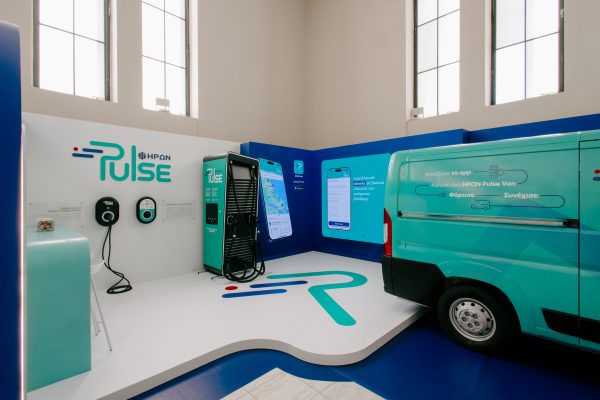
In early 2022, wine producers and exporters could see their access to the Chinese market threatened. Following the entry into force of a new customs regulation for the entry of food and beverages into the territory of China, here are some key points that will guide those who have not yet registered.
According to a post by Central Cooperative Union of Vinicultural Products KEOSOE, although complicated, the new administrative procedures are free, the Chinese authorities clarify.
In April 2021, China issued two decrees – 248 and 249 – setting new standards, two of which require all foreign food production, processing and storage facilities to be registered with the General Administration of Customs of the People’s Republic of China (GACC) and include their registration code on the product label. However, the detailed procedures for obtaining the required registration codes were not released until October, and the self-registering business site did not operate until November.
Strict deadlines and the strict registration process, without a clear explanation in the various foreign languages, have caused concern and confusion among wineries, exporters, and even diplomats and international trade representatives. Many of them complained about the lack of guidance and clarity, knowing that the move was seen as a possible way to favor local production at the expense of imported wines.
What are the changes?
Under the previous regime, only importers of wine and spirits were required to fill in information on imported wines, but the new regulations, announced in April 2021, require all wineries and production, processing and storage facilities to complete a new form, which contains detailed electronic recording, including questions such as production site, working methods and even water supply.
According to the guidelines published by Wine Australia regarding the registration process, wine production and storage facilities involved in exports to China must be registered with the GACC before the product can be cleared through customs in China. They can be installations where the packaging has been done, the bottling, the places where the product has been transported in bulk containers or in the containers to which it is exported.
With regard to the labeling process, wine and wine products ready for export, either packaged, bottled or loaded in bulk containers, must bear the registration number from 1 January 2022. Professionals who do not complete these registration processes and their goods will be blocked at customs upon entry into China.
The new rules were introduced in April, but the English-language registration site only became operational in November, leaving some time for producers to complete the form.
This means that wine arrivals destined for the biggest celebration, namely Chinese New Year will be severely affected. The problem is exacerbated by the fact that the global supply chain is already tense due to container shortages and rising prices, which will delay shipments. If ports are affected by the spread of the Omicron variant of covid-19 worldwide, future shipments are likely to be further slowed.
Although the date of entry into force of the new regulations is set for 1 January 2022, the GACC has agreed that the application should only apply to products manufactured on or after 1 January. The postponement was accepted after complaints from diplomats and officials of international trade, who complained about lack of time, as reported by Reuters. In the case of wines and spirits, this therefore applies to products bottled from 1 January 2022. It should be noted, however, that the agreement allowing this extension has not been officially announced. As the schedule for GACC registration approval and registration number security is unclear, applicants are advised to register as soon as possible.
How to register?
According to guidelines published by the French Federation of Wine Exporters & Spirits, ready-to-export products in China are classified into two categories: high-risk products and low-risk products. Wines and spirits are considered low risk products and can go through a simpler “self-registration” process through the online system China e-stop-shop for international trade. Registration must be approved by the GACC before it can take effect. China’s import and food business registration platform for self-registration is currently offered in English. However, it should be noted that the English version is being tested, which may prolong the registration process due to language issues.
Let’s also mention that the whole process is free. Therefore, professionals should be on the lookout for scams or similar platforms that require high registration fees. Applicants are also advised not to outsource the registration process, such as an importer or sales representative.
How long will it take for his registration to be approved?
Here’s the thorny question. This time frame has not been determined and the internationally registered wineries state that the time varies from a few weeks to more than a month. After completing the first registration, which includes all the information about the winery, the place of production and the wine itself, Chinese customs usually ask for corrections and additional information if this process is not completed correctly. Finally, it should be noted that after receiving the information, it is impossible to modify the form electronically.
Latest News

Economist: Greece Included in the Best Performing Economies in 2024
Meanwhile, Northern European countries disappoint, with sluggish performances from the United Kingdom and Germany.

EasyJet Expands Its Routes from Athens
The airline’s two new routes will be to London Luton and Alicante and they will commence in summer 2025.

Capital Link Forum Highlights Greece’s Economic Resurgence; Honors BoG Gov Stournaras
Capital Link Hellenic Leadership Award recipient, Bank of Greece Gov. Yannis Stournaras, an ex-FinMin, was lauded for his pivotal role during Greece’s economic recovery

Tourist Spending in Greece Up by 14%, Visa Card Analysis Shows
Greece’s capital Athens emerged as the most popular destination, recording a 17% increase in transactions with Visa cards, surpassing even the cosmopolitan island of Mykonos.

Inflation in Greece Unchanged at 2.4% in Nov. 2024
The general consumer price index (CPI) posted a 0.4% decrease in November compared to the previous month

2024 Christmas Holidays: Extended Shop Hours Schedule
The 2024 Christmas Holidays extended shop hours schedule commences on Thursday, December 12 and runs until the end of the year.

ELSTAT: Seasonally Adjusted Unemployment Down in October
The number of employed individuals reached 4,284,694, an increase of 67,723 compared to October 2023 (+1.6%) and 22,002 compared to September 2024 (+0.5%).

Greek PM’s Chief Economic Adviser Resigns
In the post on his Facebook page, Patelis did not disclose the reasons that led him to step down.

“Masdar Invests in the people of Greece and in the vision of TERNA ENERGY”
Four messages from the CEO of Masdar, the Arab renewable energy giant, after its acquisition of 70% of TERNA ENERGY

Lloyd’s List Greek Shipping Awards 2024: Honors for leading companies and personalities in the Greek shipping sector
20 awards presented at the 21st annual Lloyd's List Greek Shipping Awards


















![Χειμερινή εξοχική κατοικία: Οι Ελληνες γυρνούν την πλάτη παρά την πτώση των τιμών [γραφήματα]](https://www.ot.gr/wp-content/uploads/2024/12/Capture-19-90x90.jpg)























 Αριθμός Πιστοποίησης Μ.Η.Τ.232433
Αριθμός Πιστοποίησης Μ.Η.Τ.232433